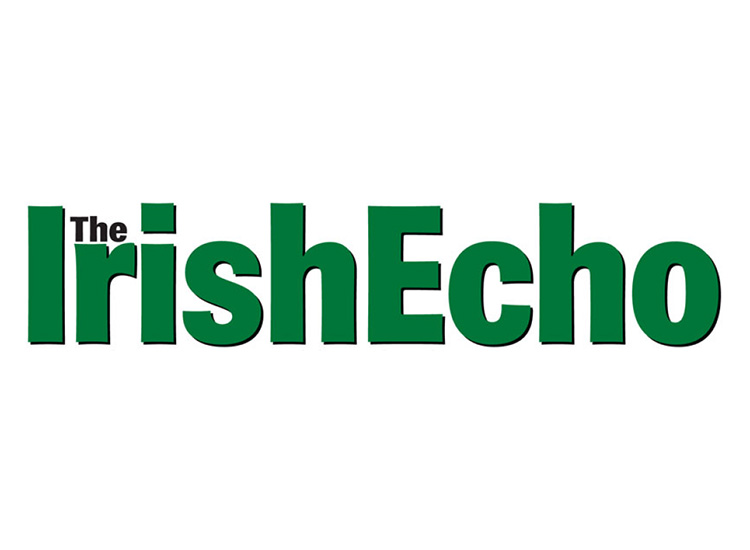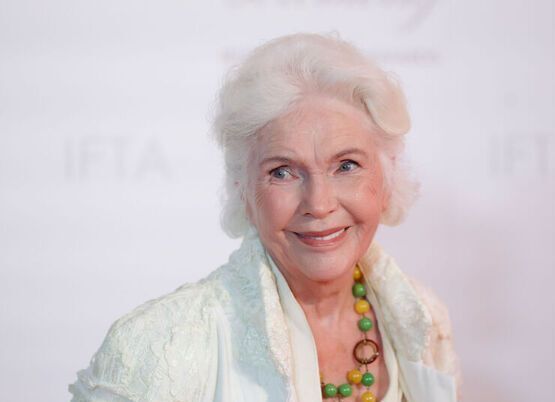Aisling Irish Center Executive Director, Orla Kelleher, and Irish Foreign Minister Charlie Flanagan.
By Patrice Brady
Whether you are just of the plane or a Subway or Metro North regular, the Aisling Irish Center is an undisputed landmark on McLean Avenue.
Celebrating its 20th anniversary this year, the center has been providing community programs and social services for the Irish community in New York since its founding in a bar in Bainbridge and has become known as a landing spot for all immigrants moving to New York, and not just the Irish.
Orla Kelleher, Kerry native and the center’s Executive Director, spoke to the Echo about the center’s humble beginning and the Irish spirit that the organization thrives on.
“The center was established over twenty years ago,” said Orla.
“It was first set up in Bainbridge and from what I’ve been told it was set up by a few people at the back room behind a bar to help the most vulnerable of Irish Immigrants, people who may have had issues with health, insurance, or issues with drink or drugs.
“So that’s really how it got together just a few people shouting, trying to figure out a way to help those who needed help.”
Over time, the organization expanded and become more involved in social issues for Irish immigrants.
In the first few years different programs were run such as a parent and toddler group, and AA meetings.
“Then in August 1996, the center having moved up and relocated to McLean Avenue, opened its doors and that’s really when the expansion of our services blossomed to what it is today,” said Orla.
Since the move to larger facilities the center grew in size and began catering for a much wider community, not only Irish immigrants.
“We’re not just catering for Irish Immigrants anymore, Orla pointed out.
And she continued: “The programs are for everybody and I suppose the main program that has really grown over the last few years is our senior program.
“We have different activities for seniors including a free lunch where over forty seniors come in for lunch on a Tuesday. It’s donated by local restaurants and food suppliers.
“Our main focus continues to be social services.
“We have two full time counselors so free counselling is one of our main services. It is also part funded by the Irish government.
“It’s a great benefit to people who can’t get health insurance and they don’t have to worry about the burden and the cost of talking to a social worker or getting counselling,” she explained.
“There’s also classes in Irish culture, Irish dance, Irish music and singing, Irish language for children and adults as well as an educational program including computer classes and a Spanish conversation class.
“The Irish music and the Irish dancing would be our most popular. Between the two classes you would easily have over 100 students attending and the karate is very popular as well for the kids. It runs two days a week in the afternoons.”
As well as helping long term Irish Immigrants, Aisling also receives the annual influx of Irish J-1 students and graduates, a category of arrival that required somewhat lower assistance this year as a result the new J-1 pre-approved job rules.
“The center is and remains a landing spot for a lot of the graduate visa holders and the J-1 students,’ said Orla.
“Now that has changed significantly this year with the change in rules for a J-1 student, having to source employment before they come out here. We didn’t have the volume of J-1 students that we had in previous years.
“We’ve actually reached somewhat of a new record with a future J-1 student in Ireland inquiring about next summer,” she said laughing.
“I don’t know if that will be any indication about the number of students we will be seeing, but at least some people will be well prepared and not coming out here without any preparation.
“But I think it really was a different scenario than it was in previous years, where we were dealing with hundreds of J-1 students over the period of a month trying to find work and accommodation for them.
“I think probably a lot of it has to do with social media and how, through that, a lot of students have become more independent, especially with Facebook helping people find accommodation. That’s taken a lot of pressure of us.”
The Aisling Center is funded through several different agencies as well as strongly relying on fundraisers, such as the annual dinner dance which took place on Friday of last week.
“One third of our funding comes from the Irish government, the Irish Abroad Unit, the immigrant program, and we would get a lot of our funding from the City of Yonkers and the Westchester Community Foundation, said Orla.
There is also great support, not just from the local community but the Irish American business community, especially with events like our dinner dance which helps fund our annual operating expenses.
It's a significant part of our budget.”
The dinner dance, now in its 13th year, followed on from celebrations earlier last month when the center updated its “Mind Yourself” booklet and website.
The booklet was originally produced ten years ago and as part of the twentieth anniversary it was revamped and updated to best cater to the needs of today’s Irish immigrants in New York.
The booklet, which was recently launched at the Irish Consulate contains a vast directory of services for all immigrants in terms of health and wellness.
Speaking about the success of the Aisling Center, Orla credits the Irish immigrant spirit, wanting to give back to the immigrant community, and helping any and all out.
“The center is known to a lot of people, and even when people come out here they've already been told about the center and that it should be their first port of call. And of course we're always happy to help people when they come in at first.
“I think it's something that a lot of Irish people have in them, that they want to help somebody when they came out here to find work and accommodation.
“It's like an extra gene or cell in us. We want to pay it forward and I suppose it's just giving people a helping hand when they come out here.
“It's the great thing about the Irish community here that they are always willing to help somebody else out, and not just Irish people exclusively.
“It’s a lovely attribute and characteristic.”








